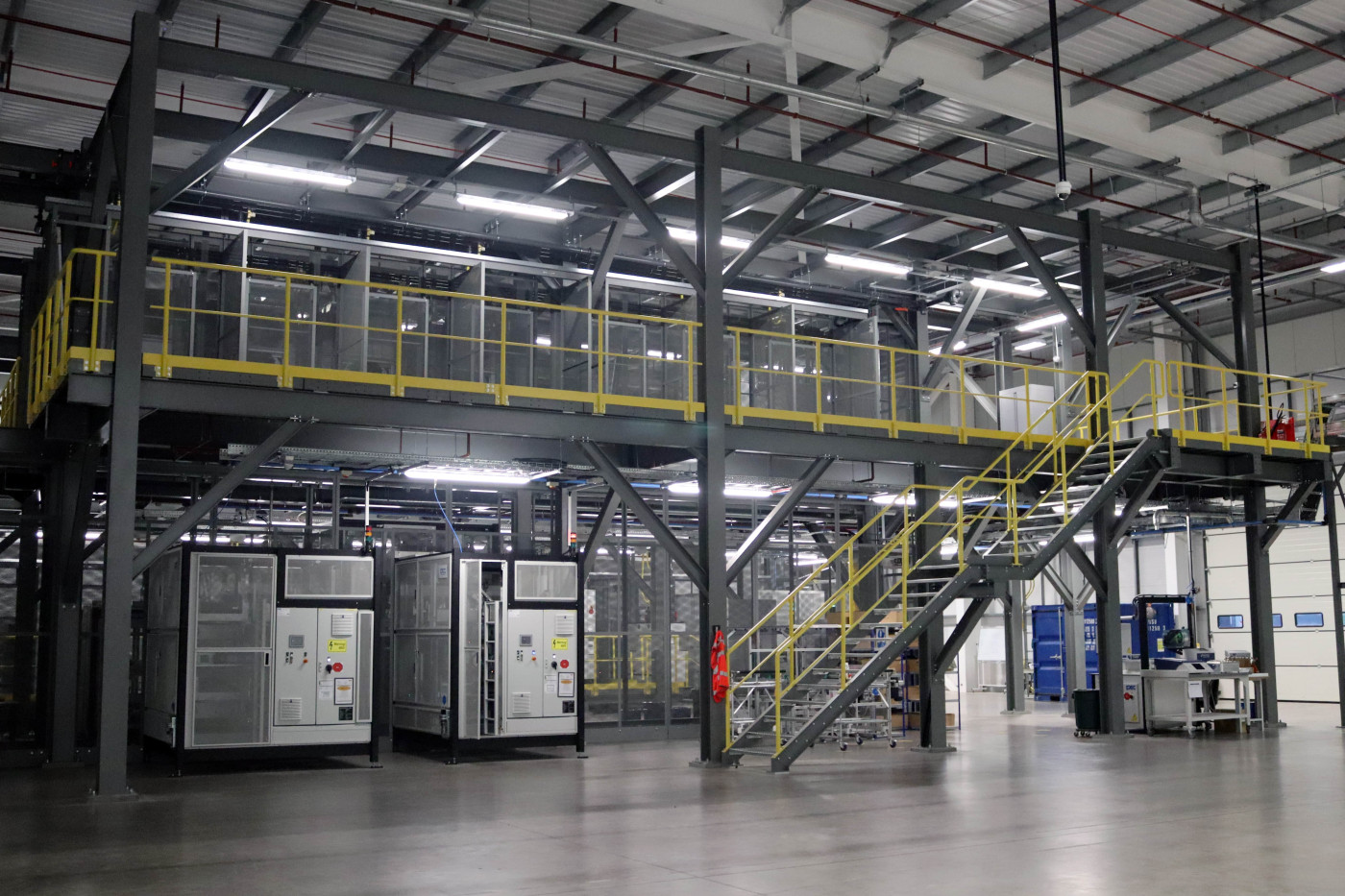Faraday Institution commits a further £9m to battery research to deliver commercial impact

Project commenced to advance battery formation, ageing, and testing for efficient and sustainable manufacturing
HARWELL, UK (3 September 2025) The Faraday Institution has announced a £9 million commitment to build on its application-inspired research programme to deliver the battery innovations of tomorrow.
The two new projects, that will begin in October 2025, include, for the first time, a Faraday Institution project to advance the scientific understanding of battery formation, ageing and testing -- a stage at the end of the battery manufacturing process. The project will aim to formulate new protocols to reduce battery manufacturing time and energy consumption in gigafactories.
This is the first of a number of new initiatives by the Faraday Institution since the Department for Business and Trade announced a multi-year £452 million investment in the Battery Innovation Programme (formerly the Faraday Battery Challenge) in the Advanced Manufacturing Sector Plan in June 2025.
“The UK’s sustained investment in research at its world-leading universities is unlocking transformative battery discoveries that, when translated into industry, will drive major advances in performance across multiple sectors. The Government’s long-term commitment ensures that breakthroughs move from the lab to commercial application, fuelling economic growth, and creating high-value jobs for the future,” commented Professor Martin Freer, CEO, Faraday Institution.
The Faraday Institution’s long-term funding also means it is in a position to add Transformational Challenges to its research portfolio. These target energy storage application challenges that have extraordinary impact potential where there are currently only conceptional solutions or ideas. The first Challenge (UltraStore) will develop ultra-low cost long duration energy storage solutions for the grid and the co-creation and planning phase is underway. The second will focus on ultra-high energy density batteries, targeting aerospace, defence and other applications – more details will follow later this year.
The Faraday Institution is the UK’s independent institute for electrochemical energy storage research, skills development, market analysis and early-stage commercialisation. It is a delivery partner for the Battery Innovation Programme, supporting the UK's advancement in batteries—designated as a 'frontier industry' within the Advanced Manufacturing Sector Plan of the UK's Industrial Strategy.
It leverages the position of the UK as providing world-leading battery research to optimise battery technologies to make them cheaper, better performing, fully sustainable and recyclable, and capture sovereign capabilities in next generation batteries chemistries.
The £9 million announced today will fund two research projects:
Advancing Battery Formation, Ageing, and Testing for Efficient Manufacturing and Sustainability
The FAST project addresses a critical bottleneck in lithium-ion battery manufacturing: the time, energy, and cost-intensive nature of the formation, ageing, and testing (FA&T) processes. While the steps are well established as part of commercial battery manufacturing processes, the scientific detail is poorly understood mechanistically and their development to date has been largely via empirical optimisation. Yet formation is essential for the establishment of interphase layers, the properties of which directly influence battery cycle life, capacity, and safety.
FAST aims to develop a science-based, scalable and more sustainable FA&T framework, optimised initially for high nickel NMC (LiNi0.9Mn0.05Co0.05O2 and above) paired with graphite or graphite–silicon anodes. Using a range of tools and protocols, researchers will track, and optimise, the physical and chemical changes that occur during formation and ageing, providing previously unmeasured mechanistic data to inform and validate new FA&T protocols that reduce manufacturing time and energy consumption, and maximise energy density, cycle life and improve reproducibility.
The project is being led by Professor Emma Kendrick, University of Birmingham, with the Universities of Warwick, Cambridge, Nottingham and Oxford, and four industry partners plus UKBIC.
Accelerated Development of Next Generation Lithium-rich 3D Cathode Materials
The 3D-CAT project is seeking to develop novel, partially ordered Li-rich 3-dimensional cathode materials from first principles, through to synthesis at 100g scale and validation in single layer pouch cells.
Changes to the cathode are a route to significant improvements in future lithium-ion battery performance. The development of new cathode materials that outperform lithium iron phosphate (LFP) and lithium manganese iron phosphate (LMFP) cathodes without requiring costly, geographically concentrated precursors or impractical synthesis routes, and that have performance to rival lithium nickel manganese cobalt oxides (NMC) hold substantial disruptive potential for the UK. Among the best materials in this class are lithium-rich disordered rocksalts. 3D-CAT builds on recent research that has revealed that partial (local) ordering of lithium and transition metal elements in the crystal lattice of disordered rocksalts can influence the 3D structure of the lithium-ion transport network and improve how fast the battery can be charged or deliver its energy during use – the rate performance.
The project is being led by Dr Robert House, University of Oxford, with University College London and four industry partners plus the AMBIC materials scale up facility at CPI.
The projects are expected to run to September 2028, with confirmation of funding beyond March 2027 to follow in early 2026.
The Faraday Institution research programme also includes eight other main application-inspired, multi-disciplinary, multi-university research projects on battery degradation, modelling, recycling, safety, electrode manufacturing, as well as next-generation chemistries: lithium-sulfur, sodium-ion, and solid-state batteries. The Faraday Institution has convened a research community of 500+ from 25 UK universities and 147 industry partners that are helping to inform research directions and accelerate routes to market. Today’s announcement builds on a previous investment of £183 million since 2018 on the organisation’s portfolio of main projects.